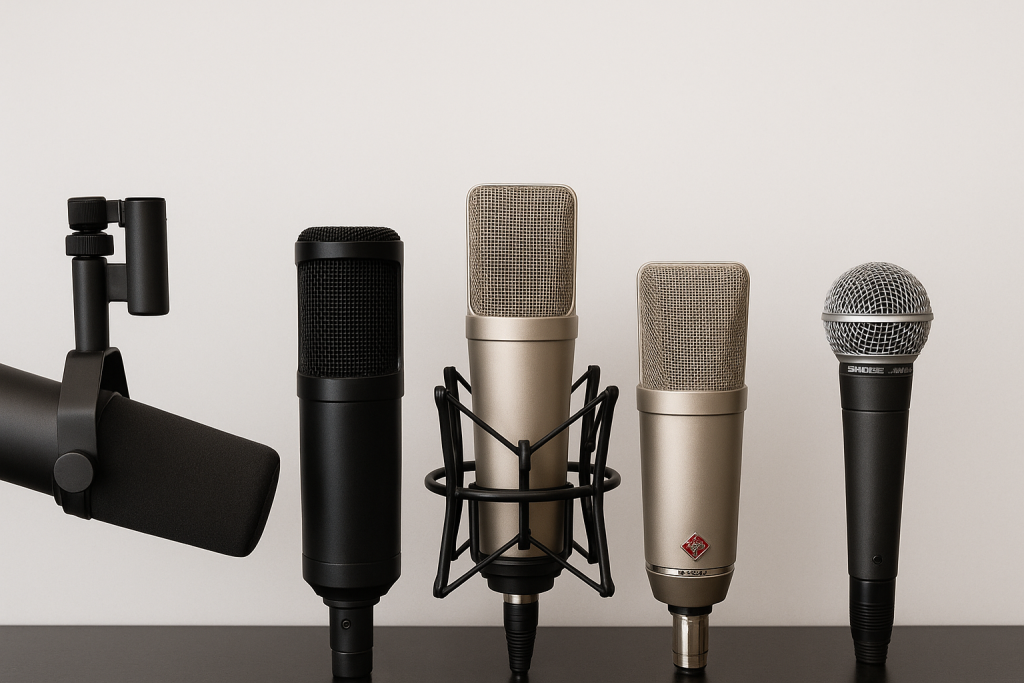
Choosing the right microphone for recording vocals is one of the most important decisions you can make in your studio setup. A good mic captures clarity, warmth, and nuance, letting your voice shine without unnecessary harshness or muddiness.
Whether you’re a beginner on a budget or a pro looking for studio-quality sound, the right microphone will take your recordings to the next level.
Here are the best microphones for recording vocals in 2025 — all reviewed and tested by ProSoundPicks.
1. Shure SM7B – The Studio Classic
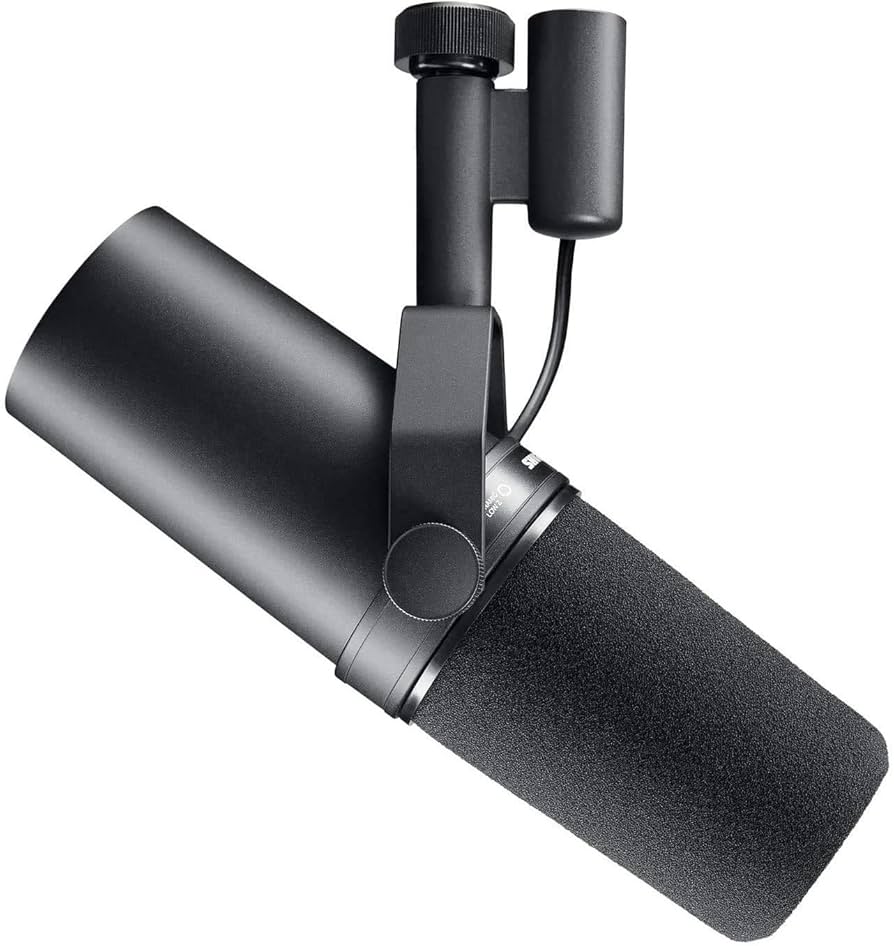
The Shure SM7B is a legendary dynamic microphone used in countless studios worldwide.
Known for its smooth, broadcast-quality tone, it handles everything from vocals to voiceovers with ease. Its natural low-end response makes it perfect for singers who want warmth without extra EQ.
Add a clean preamp or audio interface with plenty of gain, and the SM7B becomes a go-to choice for pros and podcasters alike.
Pros
- Smooth, broadcast-quality sound
- Handles vocals, podcasts, and instruments
- Excellent for reducing room noise
Cons
- Requires lots of clean gain (needs a strong preamp or booster)
- More expensive than entry-level mics
2. Audio-Technica AT2020 – Best Budget Pick
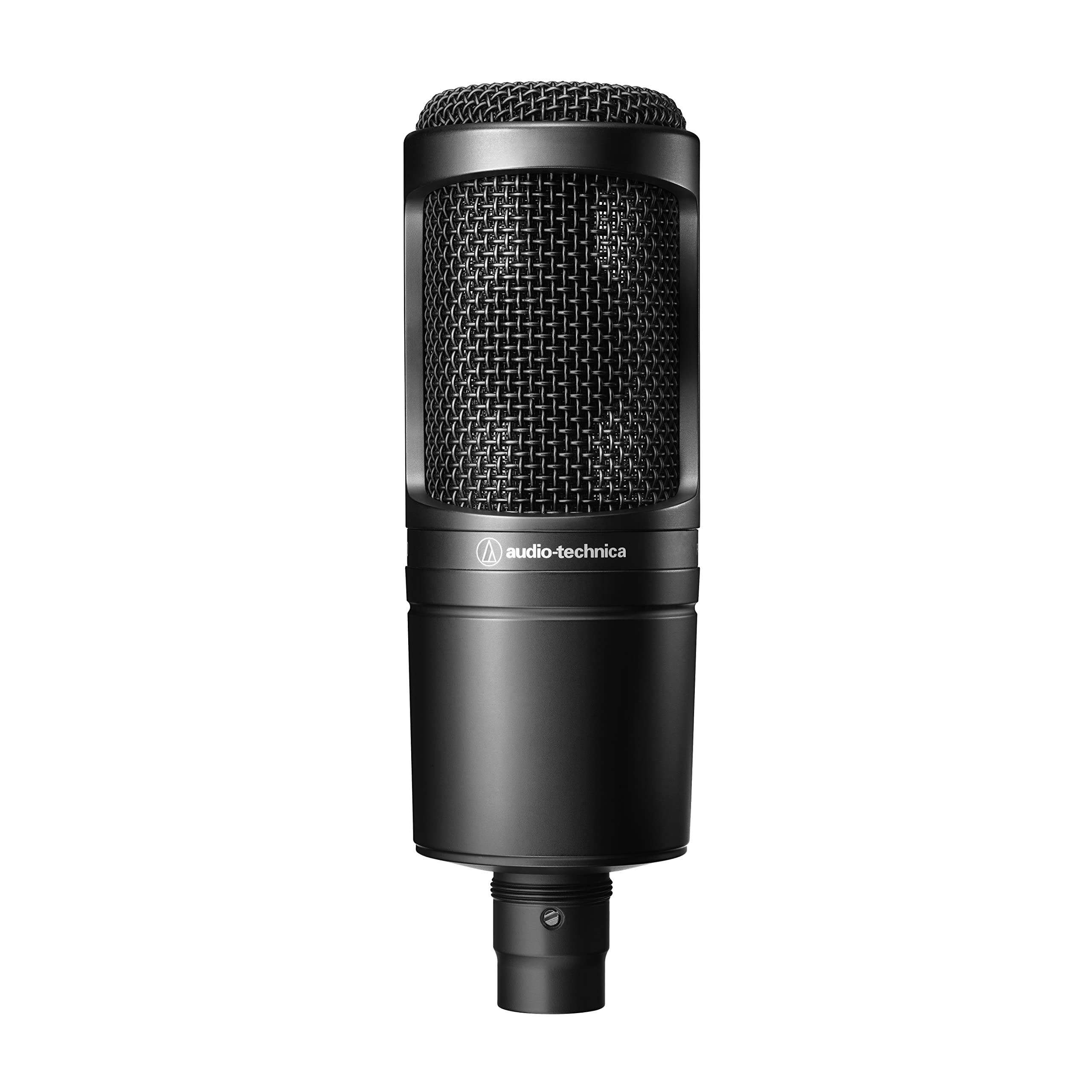
For vocalists building their first home studio, the Audio-Technica AT2020 is hard to beat. This affordable condenser microphone delivers crisp highs and solid clarity for under $100.
It’s not as rich as high-end mics, but it’s unbeatable for the price and a perfect upgrade from USB mics when you’re ready to step up your recording game.
Pros
- Very affordable
- Clear, detailed sound for the price
- Great starter condenser mic
Cons
- Lacks warmth compared to higher-end condensers
- Build quality is decent but not premium
3. Rode NT1-A – The Quiet Performer
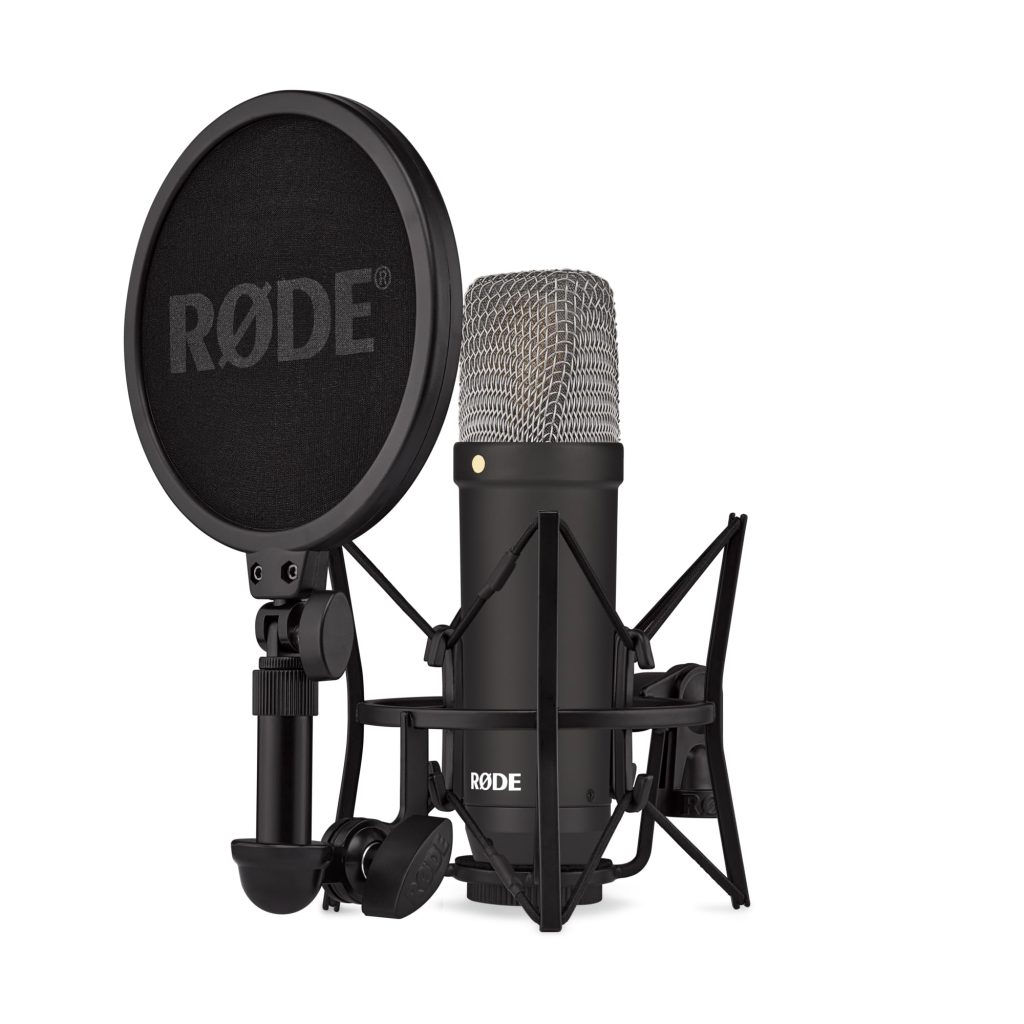
The Rode NT1-A is famous for being one of the quietest microphones on the market, with an extremely low self-noise level.
That means you’ll capture vocals with pristine detail, even in less-than-perfect recording environments. It has a bright, airy sound that flatters pop, acoustic, and singer-songwriter vocals.
Pros
- Extremely low self-noise
- Bright, detailed sound
- Excellent value for mid-tier recording
Cons
- Can sound too bright on some voices
- Sensitive — needs a quiet room for best results
4. Neumann TLM 103 – High-End Studio Standard
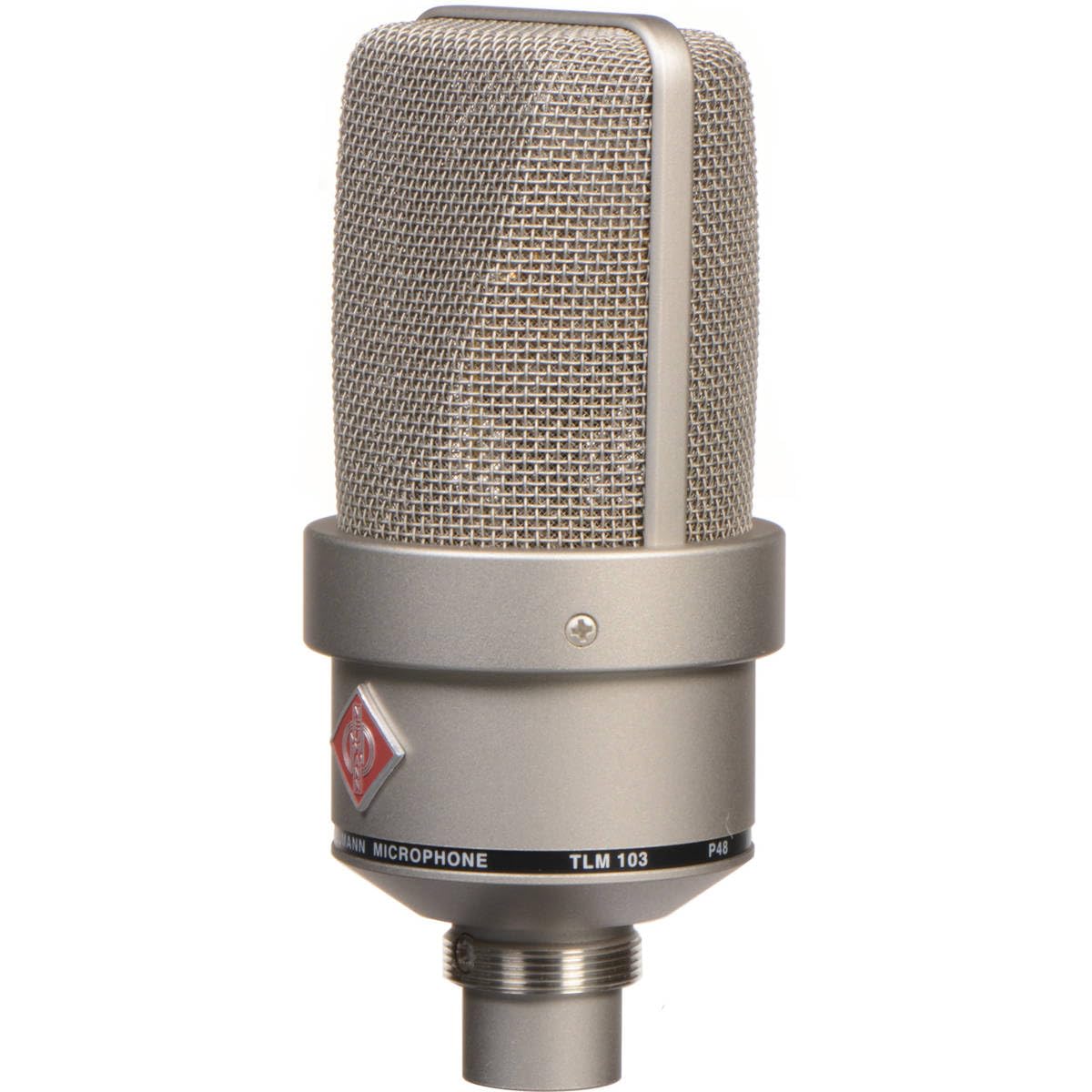
If you want that polished, professional vocal sound heard on commercial records, the Neumann TLM 103 is a top choice. With its detailed high end and silky midrange, it’s a favorite in professional studios worldwide.
It’s pricey, but for serious vocalists, this large-diaphragm condenser brings unmatched clarity and depth.
Pros
- Professional studio-grade clarity
- Rich, detailed sound across all ranges
- Trusted by top engineers
Cons
- Expensive
- Very sensitive to room acoustics — best in treated spaces
5. Shure SM58 – Live & Reliable
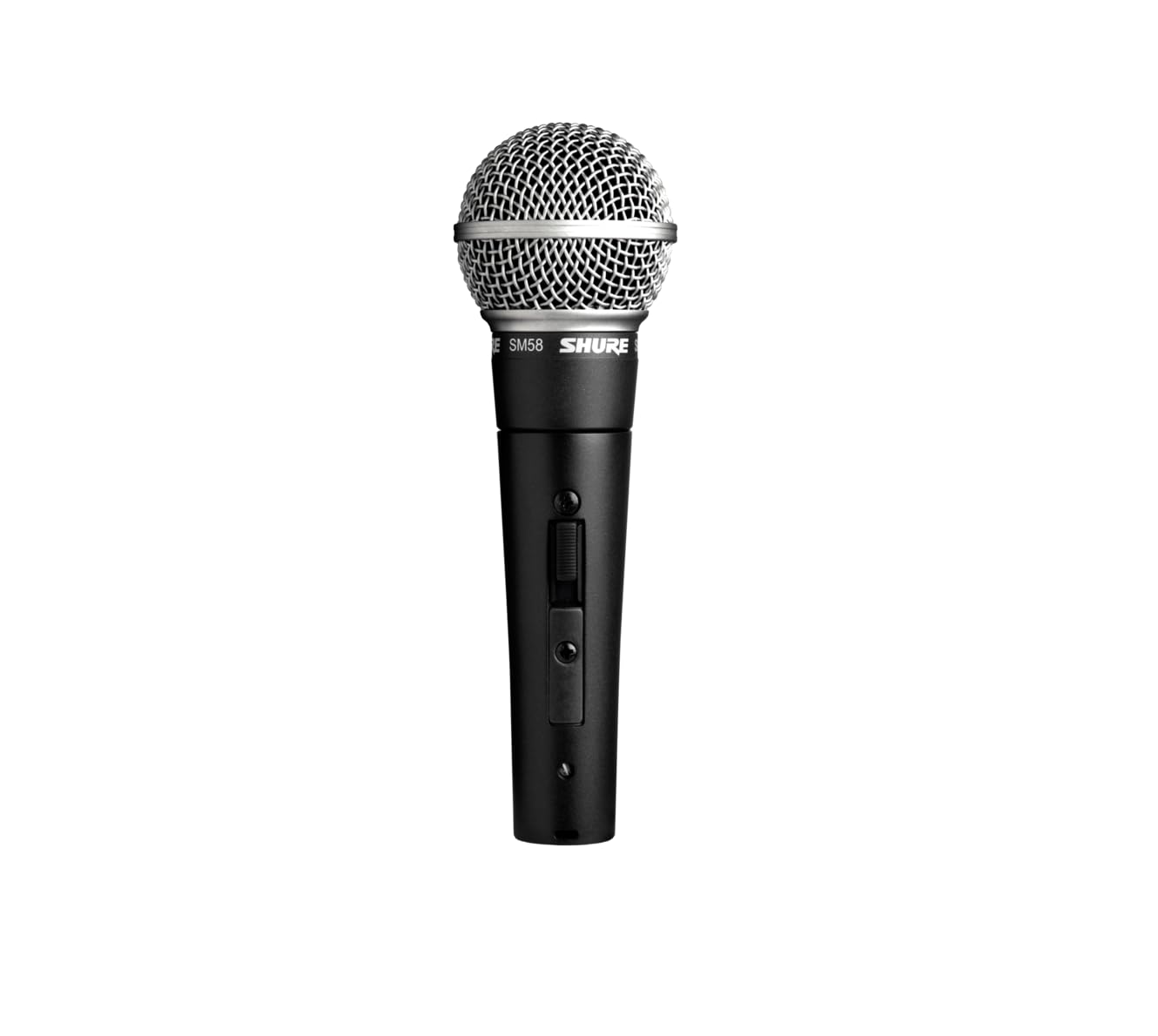
The Shure SM58 is one of the most recognizable microphones in history. While it’s most famous for live performance, it also works well for recording vocals thanks to its rugged build and reliable sound.
It won’t match the detail of a condenser mic, but if you want a versatile mic that can go from stage to studio, the SM58 is a dependable choice.
Pros
- Durable, legendary build quality
- Affordable and versatile
- Handles both live and studio use
Cons
- Not as detailed as condensers
- Requires EQ to sound polished in recordings
Verdict
From budget-friendly options like the AT2020 to studio-grade mics like the Neumann TLM 103, there’s a vocal microphone here for every level of singer and producer.
Your choice depends on your recording setup, budget, and the vocal style you’re capturing — but with any of these picks, you’ll be ready to record professional-sounding vocals in 2025.
No matter your budget or studio setup, these headphones will help you make better mixing decisions and translate your sound across any system..
FAQ
What type of microphone is best for recording vocals?
Large-diaphragm condenser microphones are the most common choice for studio vocals because of their clarity and detail. Dynamic mics like the Shure SM7B or SM58 are also excellent for certain voices, live use, or untreated rooms.
Do I need an audio interface for these microphones?
Yes — all of the mics on this list use XLR connections and require an audio interface with phantom power (for condensers) or plenty of clean gain (for dynamics like the SM7B).
What’s the difference between condenser and dynamic microphones?
Condenser mics are more sensitive and detailed, making them ideal for capturing studio vocals and acoustic instruments. Dynamic mics are tougher, handle loud sources well, and reject background noise better — great for live sound or untreated rooms.
Are budget microphones like the AT2020 good enough for professional use?
Absolutely. While high-end mics like the Neumann TLM 103 offer more polish, budget condensers like the AT2020 can capture very clean, usable vocals when paired with a decent interface and good technique.
What’s the best all-around microphone for beginners?
The Audio-Technica AT2020 is a great starter condenser, while the Shure SM58 is a reliable budget-friendly dynamic option that can handle both live and studio situations.
Looking for more guides? Return to our Guides Hub
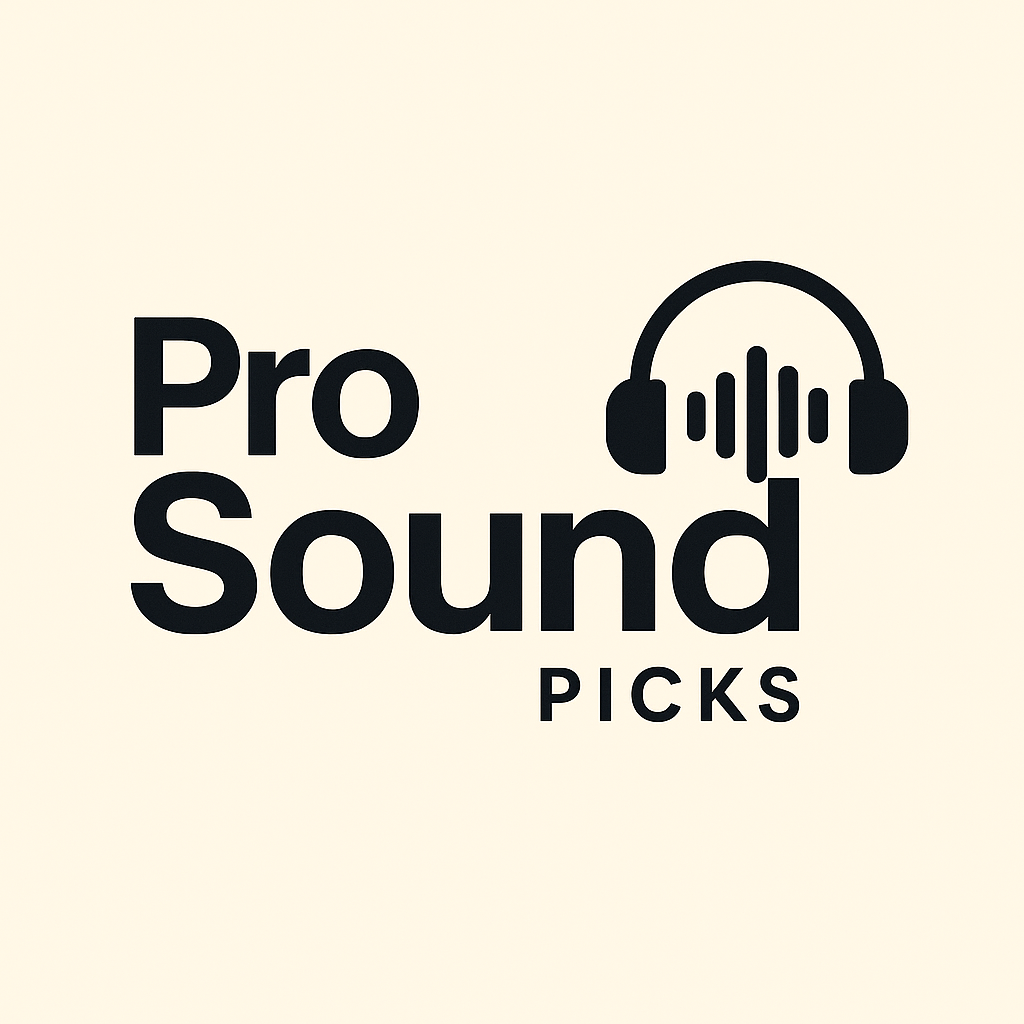
Leave a Reply